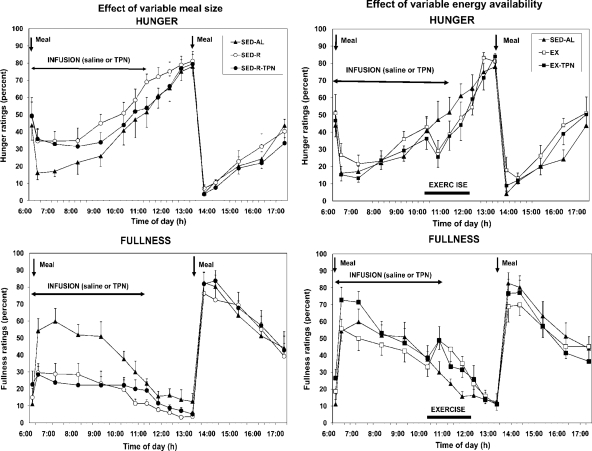Figure 1.
The effects of variable meal size (left) and energy availability (right) on the psychophysical ratings of hunger (top) and fullness (bottom) in 10 postmenopausal women subjected to a sedentary trial with a large morning meal (SED-AL), or a small morning meal (SED-R), 2 h of moderate intensity after a large morning meal (EX), and iv nutrient infusion (TPN) as a replacement of energy withheld from a morning meal (SED-R-TPN) or expended through exercise (EX-TPN). Meal size had a negative effect on hunger (Fdf4,36 = 39.3; P < 0.0001) and a positive effect on fullness (Fdf4,36 = 115.3; P < 0.0001). Exercise energy expenditure had a negative effect on hunger (Fdf4,36 = 25.5; P < 0.0001) and a positive effect on fullness (Fdf4,36 = 42.8; P < 0.0001). TPN had no effect on the psychophysical ratings.

